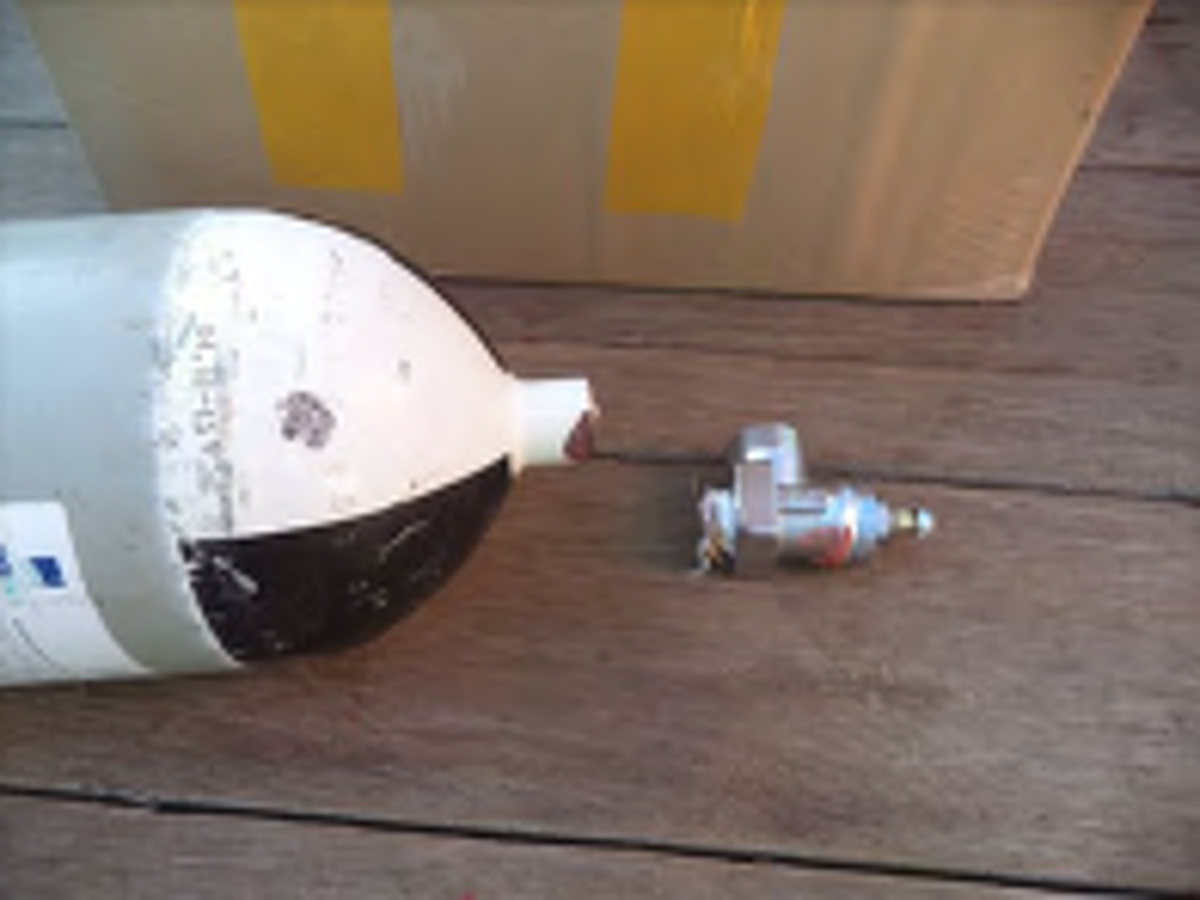Breathing air cylinder air valve broken off
- Safety Flash
- Published on 27 January 2016
- Generated on 28 February 2026
- IMCA SF 03/16
- 2 minute read
Jump to:
A member has reported an incident in which, during transportation of breathing air cylinders by a third party vessel, one of the air cylinder valves was broken off, resulting in a sudden release of air pressure. There were no additional damages or injuries caused.

Our member’s investigation noted the following:
- Carriage was conducted without following local and international requirements for transportation of pressurised cylinders.
- Offshore industry standards for transportation of pressurised gas cylinders were not followed.
- The cylinders were transported in the horizontal position and were not properly fixed or enclosed in a box or crate of substantial construction in order to prevent damage.
- There was no evidence that Management of Change (MoC) documentation and task risk assessment had been completed for this job.
- The pressurised cylinders were handled by untrained personnel.
- The opportunity to stop the job was not taken – the Master and Chief officer did not stop the crew handling pressurised cylinders even though no risk assessment had been conducted.
- The risks of handling pressurised cylinders were not properly assessed and not communicated to deck crew by vessel safety officers.
- There was a lack of control for transportation of pressurised cylinders and of crew deck activities.
Our member took the following actions:
- All cylinders were stowed in a correct manner and returned to shore for inspection.
- Local safety professionals conducted a joint investigation with a third party UK Health & Safety Executive (HSE) team, to agree finds and improvements.
- Subsequently an appropriate storage basket was made available for future use, to prevent further damage and improve safety.
The following lessons were learnt:
- Transportation and handling of pressurised cylinders should be conducted with extra care – only by trained/certified personnel, and an appropriate task risk assessment should be conducted.
- Local and international regulations and requirements and company procedures, should always be followed when transporting pressurised cylinders offshore.
- All pressurised cylinders should be transported in vertical ‘valve-up’ position, secured to prevent falling or rolling, and protected from impact from any other objects by the use of an appropriate box or crate of substantial construction.
Whilst this incident did not involve actual failure of a pillar valve, it highlights the underlying principles of appropriate care and maintenance of pressurised cylinders and associated equipment, whether used for diving or not.
IMCA Safety Flashes summarise key safety matters and incidents, allowing lessons to be more easily learnt for the benefit of the entire offshore industry.
The effectiveness of the IMCA Safety Flash system depends on the industry sharing information and so avoiding repeat incidents. Incidents are classified according to IOGP's Life Saving Rules.
All information is anonymised or sanitised, as appropriate, and warnings for graphic content included where possible.
IMCA makes every effort to ensure both the accuracy and reliability of the information shared, but is not be liable for any guidance and/or recommendation and/or statement herein contained.
The information contained in this document does not fulfil or replace any individual's or Member's legal, regulatory or other duties or obligations in respect of their operations. Individuals and Members remain solely responsible for the safe, lawful and proper conduct of their operations.
Share your safety incidents with IMCA online. Sign-up to receive Safety Flashes straight to your email.